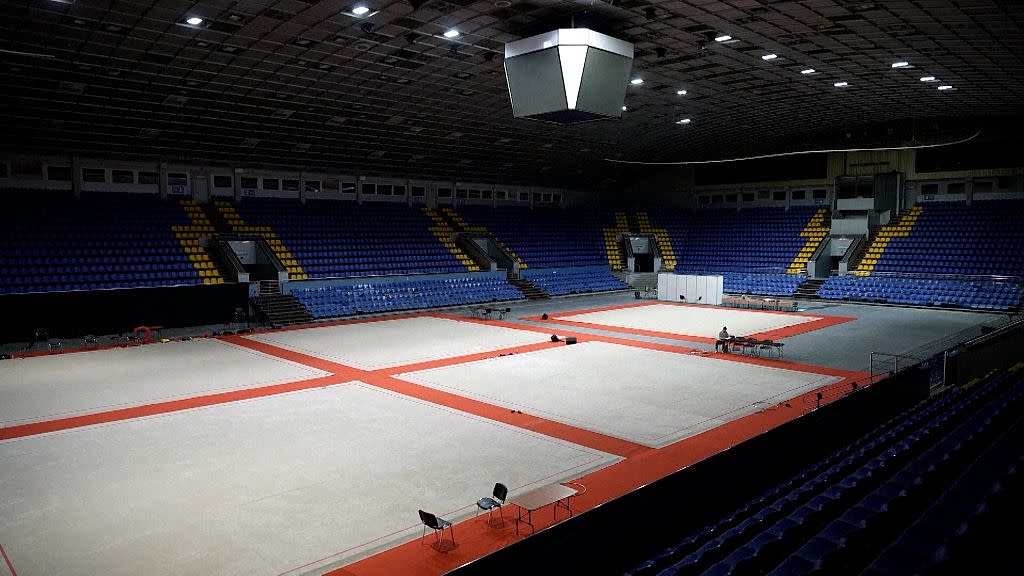War in Ukraine threatens its Olympic future — but a young amputee gymnast stays hopeful

When Oleksandra Paskal first took to the gymnastics mat as a four-year-old, her coach Inga Kovalchuk saw nothing but potential in a sport where the Olympics is the ultimate goal.
Then a Russian missile crushed her house in Odesa, burying her beneath debris and severing her left leg.
Now aged 8, Oleksandra now dreams of competing at the Paralympics. She was back training after just six months of rehab following the attack. Radiating confidence, she won her first competition a year after the strike and is inspiring a following well beyond the rhythmic gymnastics' community.
Kovalchuk prides herself on her ability to spot future talent in the sport. However, she says it is increasingly clear that the Russian invasion of Ukraine is destroying a sports culture that for decades was one of Europe's most powerful.
"My primary task today is not to achieve high results in sports but to preserve the mental and physical health of our children,” said Kovalchuk.
It takes a decade and a national infrastructure of training facilities, feeder schools, equipment and coaches to nurture an Olympic champion. A process that begins in early childhood ends up winnowing out most contenders long before they reach the Games.
UK Foreign Secretary David Lammy says commitment to Ukraine 'is ironclad'
British PM says he has already discussed Ukraine with world leaders
Russian strikes leave thousands in northern Ukraine without power and water
But according to the Ukrainian Sports Ministry, more than 500 sports facilities have been damaged or occupied by Russian troops since the full-scale invasion.
Young athletes have been deprived of opportunities to train as their coaches joined the army or fled abroad. Children who remain in Ukraine frequently find their training interrupted by air raid warnings that can last for hours.
The disaster wrought by the conflict means some children may never begin to discover their potential.
According to Veerle De Bosscher, a sports policy professor at Vrije University in Belgium, even if the war stopped tomorrow, it could take Ukrainian athletics a decade to recoup their losses.
Ukrainian boxer Maksym Halinichev won silver at the Youth Olympics in Buenos Aires in a match described at the time as “two of the best young fighters going for glory”. In an interview with the Ukrainian Boxing Federation in December 2021, he outlined three ambitions: to defeat the boxer that stopped him winning gold, to teach his daughter how to defend herself, and to win a medal for Ukraine at the Paris Olympics.
Asked if he was ever afraid before a fight, he described his thinking.
“Fear can influence people in various ways," he said. "Some people are paralysed by it. Some react by becoming more liberated.
“If you can control yourself and your body and if you can set yourself the right way, then the fear will retreat. "
Sadly, Halinchev will not be able to prove that philosophy in Paris’ Olympics. He signed up as a soldier for Ukraine and was killed at the front-line in March 2023 at the age of 22.
He is one of more than 400 athletes killed since the outbreak of the war.


